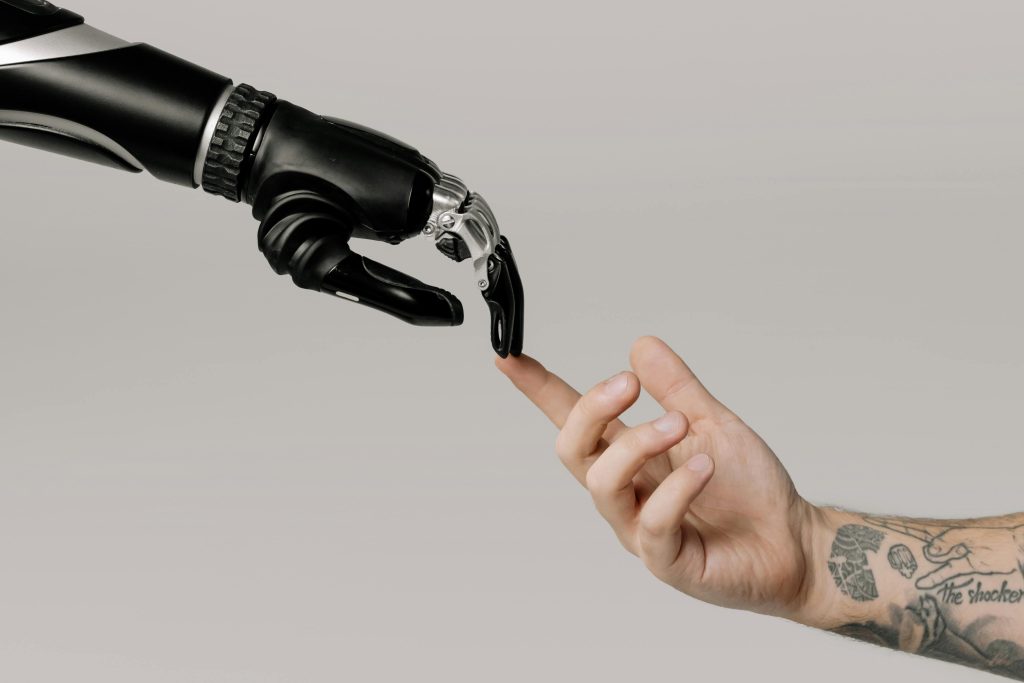Artificial Intelligence
Introduction to AI
Artificial Intelligence (AI) refers to the simulation of human intelligence by machines that are designed to perform tasks such as learning, reasoning, problem-solving, and decision-making. Unlike traditional programming, where machines follow explicit instructions, AI enables systems to learn from data and adapt to new situations. The field encompasses various subfields like machine learning, natural language processing, computer vision, and robotics. These technologies work together to create systems that can mimic cognitive functions, solve complex problems, and automate processes, transforming industries and everyday life.
AI has grown from a theoretical concept into a practical tool that powers modern innovations. From virtual assistants like Siri and Alexa to advanced applications in healthcare, finance, and transportation, AI has revolutionized the way we live and work. Its ability to process vast amounts of data quickly and identify patterns makes it invaluable for decision-making and automation. However, as AI continues to evolve, it also raises ethical and societal questions about its impact on jobs, privacy, and fairness, highlighting the need for responsible development and deployment.
Applications of AI
Artificial Intelligence is transforming industries with its wide range of applications. In healthcare, AI assists in diagnosing diseases, personalizing treatments, and managing patient care efficiently. Education benefits from AI-powered personalized learning platforms and virtual tutors, catering to individual student needs.
In business, AI streamlines operations through predictive analytics, customer support chatbots, and process automation. Transportation sees advancements with self-driving cars and traffic management systems. Additionally, AI enhances everyday experiences in entertainment, offering personalized content recommendations and immersive gaming experiences.
Benefits of AI
What Are The Types Of IELTS Test?

AI is revolutionizing automation by enabling systems to handle complex and repetitive tasks with minimal human intervention. In industries like manufacturing and logistics, AI-powered robots and predictive maintenance tools are boosting efficiency and reducing downtime. In customer service, AI-driven chatbots and virtual assistants are streamlining interactions, providing faster resolutions, and reducing costs for businesses.
As automation advances, it will shift human roles toward creative and strategic tasks that require emotional intelligence and innovation. While concerns about job displacement remain, the rise of AI also creates opportunities for upskilling and new roles in managing and enhancing these automated systems. Enhanced automation represents a transformative force that redefines productivity and labor across sectors.
AI is set to redefine personalization by delivering experiences tailored to individual needs and preferences. In healthcare, AI systems can analyze patient data to suggest customized treatments, monitor health in real time, and predict potential issues before they occur. Similarly, in education, adaptive learning platforms use AI to adjust lessons to match each student’s pace and learning style, ensuring more effective outcomes.
Beyond professional applications, personalized AI is shaping everyday experiences. From curated content recommendations in entertainment to personalized shopping suggestions in e-commerce, AI makes interactions more relevant and engaging. This ability to provide unique solutions to diverse user needs positions AI as a key driver of enhanced user satisfaction and innovation.


As AI becomes more integrated into society, ensuring its ethical use is paramount. Ethical AI focuses on creating algorithms that are transparent, fair, and free from bias. Addressing issues like discrimination, data privacy, and accountability will be crucial in building public trust in AI systems. Policymakers, developers, and organizations are working to establish clear guidelines and regulations to ensure that AI is used responsibly and benefits all people equitably.
Moreover, as AI systems are increasingly used to make decisions in areas like hiring, healthcare, and law enforcement, the need for ethical oversight will grow. Ensuring that AI systems are designed and deployed in ways that protect individual rights, prevent harm, and promote inclusivity will be a fundamental aspect of the technology’s future. By prioritizing ethics in AI development, we can ensure that these powerful systems serve humanity in a positive and just way.
AI is increasingly recognized as a powerful tool for addressing global challenges. In the fight against climate change, AI can optimize energy consumption, reduce emissions, and improve environmental monitoring. Machine learning algorithms are also being used to create more sustainable agricultural practices by predicting crop yields and reducing waste. In healthcare, AI can help improve access to quality care in underserved regions, providing timely diagnoses and personalized treatment plans through telemedicine.
As AI continues to evolve, it will also play a crucial role in managing global resources more effectively. From disaster response to poverty alleviation, AI’s potential to analyze large datasets and provide actionable insights can drive significant improvements in the way we solve complex problems. By harnessing AI’s capabilities, societies can work together to address challenges such as food security, disease prevention, and sustainable development, leading to a more prosperous and equitable future for all.


